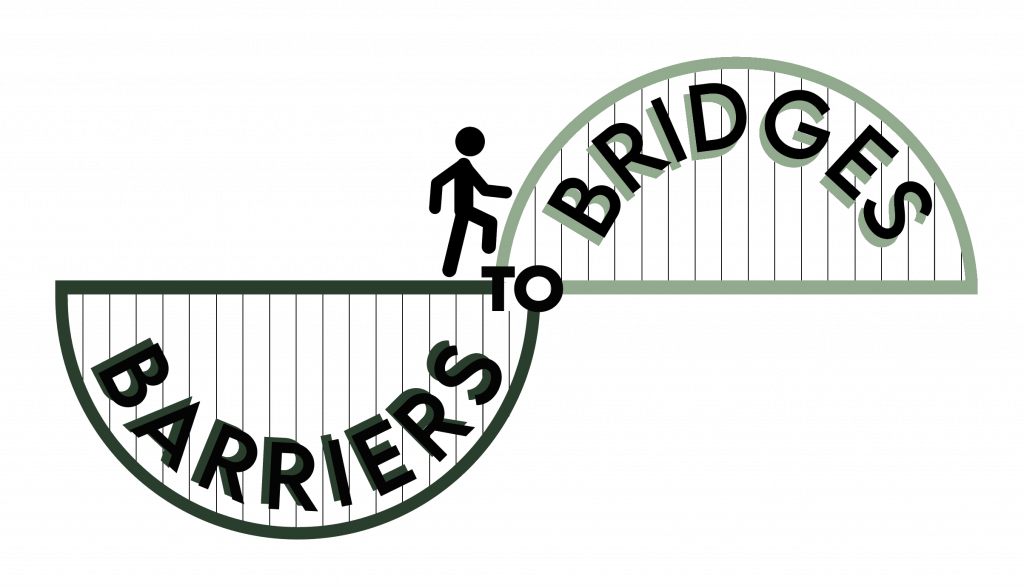by Dawn M. Sanders
Within the narrative of multifaceted issues surrounding people with visible or invisible additional needs and how we’re received by Jane or Joe public, there’s a range of ways of ‘dealing with it’ when faced with people’s ignorance or lack of tact in responding to someone who is, simply different. I’m writing from a mainly visually impaired perspective, but others of protected characteristics have similar prejudices or preconceptions to navigate.
There’s the other side of the coin where people seem to think they must over-compensate when interacting with someone else’s challenges. I recently had an appointment at my bank to set up a new account and the woman serving me was like: “Your going to hear some clicking.” when she started writing down stuff on the computer and I said: “Well, I’d expect that if your typing.” She laughed tentatively, but she got it.
I’ve written extensively, from angry blogs, to reflective musings within my personal journals on the tedium and often downright tiring steady diet of reactions I potentially get around every corner of my external escapades. That’s not to say I don’t get positive reactions or the desired, no reaction at all, as a woman with a visual impairment. I think – if people of colour should be able to expect no reaction from a white majority to the colour of their skin upon first interaction, so should I. Yeah, I use a stick, so what! Yeah, I can’t return a smile or dirty look and navigate the world differently, so what?

There is often an underlying expectation to take things with a pinch of salt or lighten up about your life situation, but it should be an option, not a favoured expectation.
Humour has its place if you’re hurting inside, but need to put on an external ‘brave face.’ This can be both damaging and therapeutic – damaging in the sense that you’re trying to appease family, friends or society that, ‘hey, I’m alright, it’s a no brainer’ when actually, it’s not and you’re feeling down. Or, the laughter coming from whatever jokes you muster from tapping into your pool of resilience, can be enriching and open doors.
In the late 90s Gerry, a friend of mine, used to live in Brighton at the same time as me, yet we hadn’t met, but danced broadly in the same social circles – back then, he did stand-up comedy. One day he saw an ad which said, ‘call this number to enquire about a space’. It was the Marlborough gay pub with small theatre upstairs, so he rung the number to ask about a slot. During the phone conversation the guy asked: “are you gay?” Gerry thought, they can tell just by talking on the phone. He replied: “No, I’m fucking miserable.” – laughter followed and he got a spot as the token heterosexual. So, within seemingly closed communities, humour can be the ticket.
Walking down Exeter’s congested high street, I navigated my way around a billboard and a woman standing there said: “I’m in your way” as I sidestepped to get passed her and I replied: “You’re not, I’m just doing my pogo dance.” Often, it depends on what mood I’m in and that’s the same for others I’ve spoken with when humour can help – it also helps keep my own disposition buoyant on life’s rollercoaster.
Sarcasm is also a coping mechanism, especially when you’re feeling undermined. Standing outside my local pub one night about to dial for a taxi and this guy says: “How do you do that?” I thought ‘duh, and replied: “How do you tie your shoes in the morning?” Sarcasm is often looked upon as rude or confrontational, but to have to face constant ignorance is also disrespectful and can lead to confrontation, so right or wrong, it’s there for the taking – not for someone of a more obliging persuasion to judge as has often been the case from other people with visual impairments favouring the status quo.
As a kid my mother used to sometimes describe me as happy-go-lucky. Happy-go-lucky? What a dumb use of phraseology, I thought to myself. It was when things were good and I could roll with it. I had a lot of physical and emotional pain, I wasn’t a happy kid, as I faced bullying, had few friends as ‘that blind girl’ few wanted to play with. My home life was unhappy, as my mum had mental health issues which came out in volatile waves – living in an unpredictable atmosphere. To cope with it, my family had a warped since of humour and we’d laugh at really sick jokes, even on each other.
Humour can be a double-edged sword, if used at the expense of others with protected characteristics. Ricky Gervais has recently faced backlash for making fun of people who are trans which, is an uncool way to use one’s platform – it puts certain communities on defensive footing when society still has a ‘problem’ with their choices or characteristics. Dark humour should never be the guise for insults and Gervais contradicts himself by saying he’ll say anything for a joke – right-wing, left-wing, as he trumpets human rights and quickly follows it with a gag at the expense of the trans community.
No one is completely immune from having a dig at someone’s character or attributes – Monty Python was extremely funny, well the bits that didn’t fly over my head and it took the piss at a time when it could get away with it and things weren’t so sensitive or dare I say, PC. Yes, we all need to laugh at ourselves, because life’s too short to take everything so serious, yet keeping the art of integrity in good balance is the key to respect and being true to ourselves. When your very agency as a person with a visible or invisible ‘difference’ is constantly either undermined or trampled upon, we should be able to use whatever coping mechanism works to maintain agency and respect – not to mention our sanity.
I’ve been called a ‘madam’ for correcting a transport worker when they’ve said: “I’m gonna put you on that bench.” and I’ve said: “You mean ‘help me get’.” – sounds pedantic, but when this particular transport worker got really irate with me for daring to assert my agency, I reminded him I’m not a piece of luggage.
As a kid I never stood up for myself and would let someone’s ignorance put me in a bad mood for days. Learning to assert myself has taken years and I don’t always get it right, but I’ll never forget what a classmate wrote in my yearbook when graduating from high school – ‘rock hard and ride free’ and I always do when I can get away with it.
© 2024
